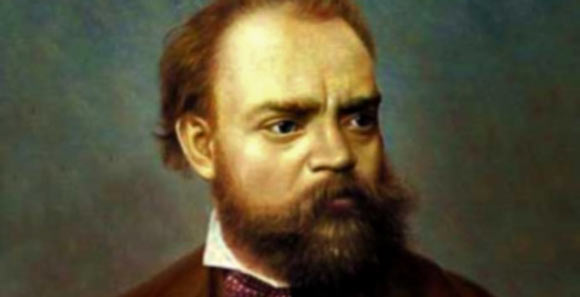
Antonin Dvorak was a famous Czech composer. He was known for instituting native folk music in his compositions.
Antonin Leopold Dvorak was born in Nelahozeves, Prague on the 8 September 1841. He was taught to play the violin while he was in primary school by Joseph Spitz. He was then sent to live with his uncle in Zlonice so that he could learn German. Dvorak’s teacher, Anton Liehmann, also gave Dvorak lessons on music theory, and on how to play the piano, violin, and the organ. His musical ability was noticed by his teacher, who sent him to study further under Franz Hanke. At the age of 16, he finally made the decision to devote his career to music. He then studied at the organ school at Prague. In addition to giving piano lessons, he also played at various orchestras and symphonies to make ends meet. While playing at orchestras, he was said to ‘fall in love’ with the music of Richard Wagner. He then went on to write several string compositions and operas. His first opera was called ‘Alfred’, but it was to be performed later on in his life, much like many other of his first compositions. His first work to be performed publicly was the song Vzpomínáni in 1871. A year later in 1872, Dvorak would have one of his Piano Quintet’s performed in Prague, which were soon to be followed by a revised version of his opera “The King and the Charcoal Burner” two years later. In 1874, he was awarded the Austrian State Prize for composition, which bolstered his popularity and fame in all of Austria. The award also helped Dvorak’s pitiful financial situation. He won the same prize again in 1877, this time he also received personal recognition from the highly acclaimed Eduard Hanslick. Hanslick, together with Johannes Brahms, helped promote Dvorak’s music in renowned music circles. He went on to write the ‘Slavanic Dances’ and the ‘Moravian Duets’ together with various string compositions, the result of which was immediate fame. Dvorak’s music finally found its way to Germany, the United States, and to England with the performances of ‘Stabat Mater’. Thereafter, he was appointed as a conductor at the Royal Philharmonic Society of London, where he would write and conduct many of his own symphonies. In addition to his time in England, Drovak would also conduct many performances in Moscow and St.Petersburg. He also found great success in New York, having written the ninth symphony “From the New World”, which awarded him celebrity status all over the world.
Dvorak spent the last years of his life at the Prague Conservatory, where he was granted an honorary position as a teacher, and later as a director. Antonin Dvorak died on the 1 May, 1904. He spent the first half of his life in great hardship, but his great determination in music, fueled by his Bohemian Heritage and by personalities like Richard Wagner, assured him his well deserved status as an exemplary musician.